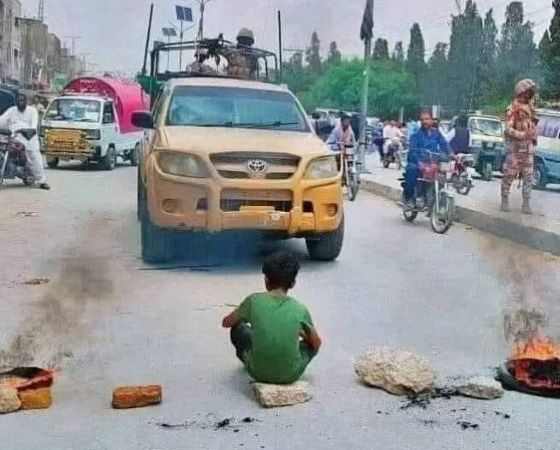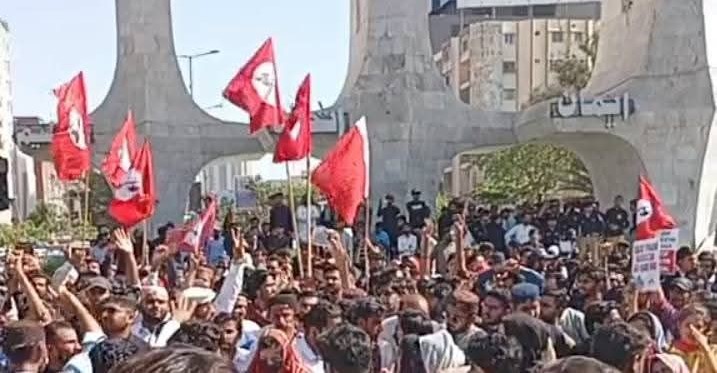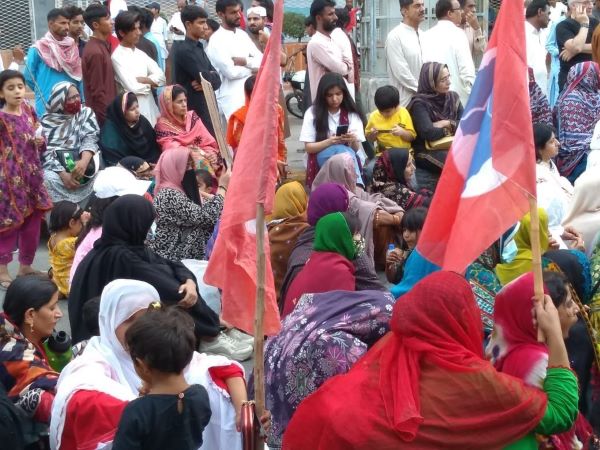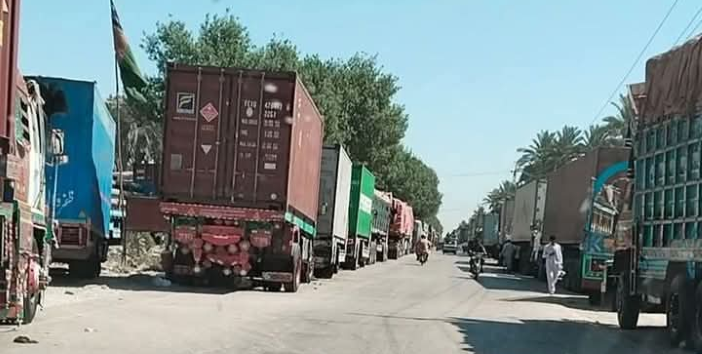Pakistan plunges into water-war-like situation!

By Nasir Aijaz,
The AsiaN Representative
KARACHI / ISALAMABAD: While the Pakistan government is faced with internal strife over its own controversial projects of constructing six new canals from Indus River and grabbing the land for military backed companies, that has been resented by Sindh and southern Saraiki-speaking region of Punjab province, India on April 23, 2025 suspended Indus Basin Water Treaty of 1960.
India’s decision follows a terrorist attack in Indian-administered Kashmir, which is a great setback for Pakistan. It is said that the Indian move is the result of cross-border terrorism.

The Indus Waters Treaty, signed in 1960 and brokered by the World Bank, is one of the world’s most durable international water-sharing frameworks. It governs the use of six rivers in the Indus Basin: Eastern rivers: Ravi, Beas, and Sutlej (allocated to India), and Western rivers: Indus, Jhelum, and Chenab (allocated to Pakistan).
Under the treaty, India received rights over 20% of the system’s water – roughly 33 million acre-feet (MAF) or 41 billion cubic meters (BCM) annually—while Pakistan received 80%, about 135 MAF or 99 BCM.
India is allowed a limited use of western rivers for non-consumptive purposes like hydropower, but cannot block or significantly alter flows.
Pakistan is now pleading that it has rights over the rivers’ water, being the lower riparian.
Regarding the internal situation of Pakistan, the government itself has been violating and usurping the lower riparian’s rights over the river water.
In recent months, the southern Sindh province has witnessed significant and unprecedented unrest driven by widespread discontent over the government’s plans to construct six new controversial canals and facilitate the allocation of over 50,000 acres of land (in Sindh alone) under the Green Pakistan Initiative.
Backed by military-affiliated companies, this project has sparked a strong emotional response from local populations. The uprising has resulted in roadblocks and highway protests that have severely disrupted supply lines to Punjab, halting the transportation of essential commodities.

Sindh, known for its rich agricultural land and extensive river systems, particularly the Indus River, has a long history of water management challenges, exacerbated by climate change and governmental mismanagement.
Vulnerable to both floods and droughts, the region has heightened competition for water resources. The government’s directive to construct new canals under the Green Pakistan Initiative has been perceived as a threat to the livelihoods of local farmers, prioritizing industrial and agricultural elites over small landholders.
The critics argue that the initiative masks land grabs by corporations in fertile regions. The allocation of vast tracts of land raises suspicions about the privatization of agricultural resources that traditionally belong to local communities. Announcements regarding land grants under the initiative have met fierce resistance as communities fear dispossession of their traditional lands.
Protesters have resorted to blocking highways, resulting in thousands of trucks being stranded and a halt on the supply of vegetables and essential commodities to Punjab. This action has raised the stakes in the conflict, drawing statewide attention and impacting food security in Punjab province and other regions.

The uprising has seen widespread protests, road blocking tactics, and organized community meetings led by local leaders advocating for farmers’ rights and environmental justice.
Activists have effectively used social media to gain support, expanding the movement’s visibility beyond local boundaries. The roadblocks have not only impeded supply chains but have also galvanized public sentiment against perceived injustices, emphasizing solidarity among farmers, environmental activists, and civil society organizations.
The construction and resulting water diversions threaten the already fragile ecosystem. Altering water flows can disrupt local biodiversity and impact the health of the Indus River, increasing environmental degradation and insecurity for both agricultural communities and local wildlife.
The situation in Sindh can indeed be described as resembling a water-war-like scenario. The ministers of federal as well as Punjab provincial government, at the outset, used abusive language and threats against the protestors of Sindh, but when highways were blocked and all supply lines were cut, the rulers have approached for negotiations, the lawyers, civil society, common citizens, men, women, activists of nationalist parties etc. have refused to enter talks unless the controversial projects are shelved.
The current situation is that all the roads leading to Punjab province are blocked, the sit-ins and rallies by tens of thousands in every city and town continue.
Around 40,000 trucks and trailers loaded with essential goods for Punjab and other regions are stranded in Sindh. Loading and unloading at ports, import and exports have halted resulting in loss of billions of dollars. Punjab has gone short of petrol as no supplies from Sindh are allowed.

In the second phase of protest, the agitating masses have announced blocking the Punjab-bound train service, and hinted at disrupting the flights from Karachi to upcountry. The mass sit-in has been staged in Khairpur district where over one hundred thousand protestors have blocked the highway, and thousands of people from all over the province are coming on daily basis to show solidarity.
But a very surprising and positive development observed during the prolonged blockade is that the protests are peaceful, and none of the thousands of trucks and trailers was damaged.
On the contrary, the protesting masses are providing food and water to thousands of drivers wherever they are stranded. The protestors are saying, “We are fighting against the system, against unjust policies. You are our guests.”
Given these factors, the ongoing unrest in Sindh has the attributes of a water conflict, as it involves both the competition for critical water resources and the significant socio-economic ramifications for communities dependent on those resources. The situation reflects deep-rooted grievances related to water management, resource allocation, and regional equity—elements that are typical in water wars.
In summary, while not a “war” in the traditional sense, the circumstances in Sindh can indeed be conceptualized as a “water-war-like” situation, highlighting the critical intersection of water rights, agricultural sustainability, and socio-political tensions.

The use of hate speech and threats by political figures can significantly escalate tensions and create an environment of hostility. Such rhetoric can not only incite violence but also polarize communities, which exacerbates existing divisions between ethnic and provincial groups. This kind of discourse is particularly damaging in a country already navigating complex socio-economic and political landscapes.
The inflammatory statements contribute to a sense of marginalization among Sindhis, fostering feelings of fear and resentment. This dynamic can lead to a vicious cycle where both sides become entrenched in their positions, making constructive dialogue and resolution more challenging. It is crucial for political leaders to recognize the power of their words and the potential consequences they carry.

The ongoing backlash could indeed spark broader interprovincial conflicts, transcending the immediate issues of water rights and land allocation. Amidst such a situation at the domestic front, a new conflict over the river water between India and Pakistan, has emerged, which is feared to escalate and aggravate the water-war-like situation.
Latest
Any Indian attempt to divert or stop water flow according to the Indus Waters Treaty would be considered an act of war, Pakistan warned on Thursday, a day after New Delhi suspended the 1960 agreement following an attack in disputed Kashmir that killed 26 people.
Announcing reciprocal measures after a National Security Committee meeting in Islamabad, Pakistan said it will suspend the 1972 Simla agreement and close the Wagah border, currently the only legal crossing between the two countries with immediate effect.
Islamabad also suspended all trade with India including to and from any third country through Pakistan, and closed airspace for all Indian-owned or Indian-operated airlines.




